América del Sur/Perú/Abril 2016/Fuente:Andina/Autor:Jack Ramón
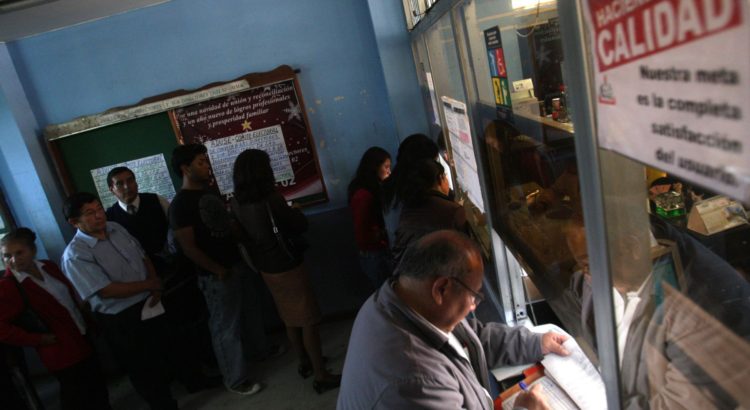

América del Sur/Perú/Abril 2016/Fuente:Andina/Autor:Jack Ramón

Vanuatu: Vt250 million Fee Exemption Paid
Vanuatu/abril de 2016/Vanuatu Daily Post
Resumen: Un total de VT250 millones ha sido transferido y compartido con las cuentas bancarias de todas las escuelas secundarias Algunas escuelas en Shefa, como Malapoa Colegio, Escuela de Epi y el Instituto de Tecnología de Vanuatu (VIT) confirmaron que recibieron su parte la semana pasada.
Este fondo restante cubre todo 2015 pendientes; 60% de plazo II, el 100% del término III y el 100% de 2016.
By Anita Roberts
A total of Vt250 million has been transferred and shared to the bank accounts of all secondary schools that were granted fee exemption.
Some schools in Shefa Province, like Malapoa College, Epi High School and the Vanuatu Institute of Technology (VIT) confirmed they received their share last week.
This remaining fund covers all 2015 outstanding; 60% of term II, 100% of term III and 100% of 2016 term one.
The fee exemption applies to schools badly affected on the islands of Merelave, Maewo, Pentecost, Paama, Ambrym, south and south east Malekula and every islands in the provinces of Tafea and Shefa.
It covers tuition fees and examination fees in all secondary schools and government institutions as the Vanuatu Institute of Technology, Vanuatu Institute of Teacher’s College and USP.
Following the declaration last year, the government was able to meet only 40% of the school’s tuition fees. The leftover 60% is now paid off.
With that, the Acting Principal Education Officer (PEO) at the Shefa Education Office, Jonathan Yona, is urging all schools to ensure that the funds are smoothly transferred to each students’ accounts.
He referred to students who enrolled in 2015 but are now transferred or selected to another school, for example, final year students.
This means that the school principals must work closely with the bursar to sort this out and must make sure that the money, in case of this year’s term one fees, reaches students in their new schools, said PEO Yonah.
Parents are also advised to approach the school authorities and ask if their children’s names are exempted from paying school fees or not.
The fee exemption initiative only targets children whose parents are farmers and do not have a means of regular income excluding those whose parents are working in the government or private sector.
The Ministry of Education and Training has clarified earlier this year that parents who have already paid fees will be reimbursed.
The Director of Education Services, Roy Obed, said schools are encouraged to work closely with parents to sort this out.
The Council of Ministers endorsed for the Department of Finance to release some money from the Tropical Cyclone Pam Recovery Fund towards the fee exemption.
Fuente: http://dailypost.vu/news/vt-million-fee-exemption-paid/article_3433b59f-c430-50c1-b76c-0776e71e2b71.html
Foto: http://bloximages.chicago2.vip.townnews.com/dailypost.vu/content/tncms/assets/v3/editorial/6/21/62185578-ce6f-5ae5-b70c-864de593346c/5717f73d20f19.image.jpg?resize=300%2C225

Islas Marianas: PSS says 4 high schools will close if projected revenue does not change
Islas marianas/Abril de 2016/ portal Marianas Variety
Resumen: El sistema escolar público dice que si los ingresos del gobierno de los créditos disponibles para el año fiscal 2017 no cambia, se tendrá que cerrar cuatro escuelas secundarias y su oficina central. El Comisionado de Educación Rita A. Sablan, en una carta al gobernador Ralph Torres, señaló que su Oficina de Gestión y Presupuesto ha identificado sólo $ 112 millones de fondos para la apropiación en comparación con el año fiscal 2016 de $ 146 total de millones de presupuesto.
THE Public School System says if government revenue available for appropriations for fiscal year 2017 does not change, PSS will have to close four high schools and its central office.
Education Commissioner Rita A. Sablan, in a letter to Gov. Ralph Torres, noted that his Office of the Management and Budget has identified only $112 million in funding for appropriation compared to the FY 2016 total of $146 million budget.
“If PSS were to concede that its total budget pursuant to the 25 percent guaranteed funding under Section 1 (e) of the Article XV of the Commonwealth Constitution would be $28 million, PSS would have to close all four high schools and the central office to operate within the OMB budget figure,” Sablan said. Her letter was also signed by Board of Education Herman T. Guerrero.
“Because of the constitutional right of every person to free, compulsory and public elementary and secondary education, the Board of Education cannot fulfill its constitutional responsibility by submitting such an irresponsible budget,” Sablan and Guerrero stated.
PSS has asked for a budget of $39.5 million in FY 2017 which starts on Oct. 1, 2016. The amount reflects a $3 million increase compared to the school system’s current budget of $36.4 million.
“We ask for the support of the administration in our efforts to improve the educational experience of our students,” the education officials said.
Fuente: http://www.mvariety.com/cnmi/cnmi-news/local/85608-pss-says-4-high-schools-will-close-if-projected-revenue-does-not-change
Foto: http://k45.kn3.net/taringa/1/4/7/3/6/7/20/ensichivas_45/728.jpg?1908
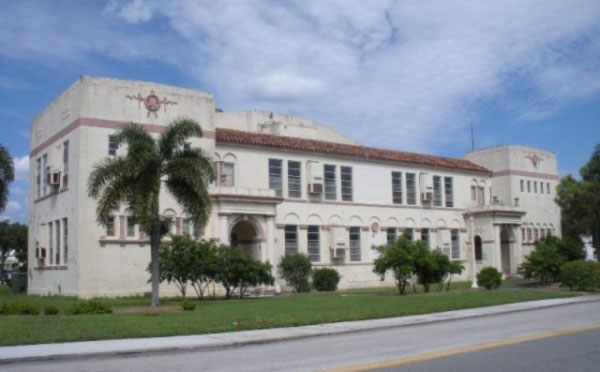
SunSentinel/19 de abril de 2016/Por: Attiyya Anthony
Resumen: Una demanda pendiente podría lanzar una torcedura en el plan de Boynton Beach para reconstruir esta histórica escuela secundaria. Hoy martes, la Comisión de la Ciudad de Boynton decidirá si se debe proceder
con un plan de Arquitectos REG con sede en West Palm Beach y Straticon de construcción para restaurar el edificio ubicado en el 125 E. Ocean Ave. en el centro de la comunidad. Sin embargo, el equipo legal de la ciudad dice que discutir los costos y los ingresos potenciales del proyecto podría alargar una demanda pendiente. Esto se debe a que el demandante, que previamente tenía planes para el sitio, está buscando «daños monetarios por el lucro cesante que
cree que habría obtenido». Como parte del plan presentado recientemente por Straticon, la constructora invertirá $ 4 millones en el edificio, lo que permite REG Architects salvar la escuela de la demolición y transformarla en un punto focal de la comunidad para que sirva de sede a la mayor parte de arte de la ciudad y residentes de Boynton. En una reunión reciente, la Comisión Municipal pidió al encargado de la ciudad para solicitar los restantes $ 1.5 millones y $ 300,000 anuales durante 20 años necesarios para financiar la reconstrucción del edificio. El Alcalde Steven Grant dijo que la revisará los hechos: «Estamos tomando en cuenta toda la información que tenemos», dijo.»Estamos
recibiendo nueva información acerca de la escuela secundaria». Y agregó: «Se ha esperado más de 20 años, por lo que unos cuantos meses no van a afectar mucho más.»
Noticia:

A pending lawsuit could throw a kink in Boynton Beach’s plan to redevelop a
historic high school.
On Tuesday, the Boynton City Commission will decide whether to proceed with
a plan from West Palm Beach-based REG Architects and Straticon Construction
to restore the building located at 125 E. Ocean Ave. into a community hub.
But the city’s legal team says that discussing the project’s potential
costs and revenue could lengthen a pending lawsuit. That’s because the
plaintiff, who previously had plans for the site, is seeking «monetary
damages for the lost profits it believes it would have earned» had a prior
project gone forward, city agenda documents state.
In 2013, Juan Contin, of Boynton Old School Partnership LLC, presented the
city with a plan to turn the vacant school into a entertainment and
destination center. The city rejected the necessary zoning for the project,
because they didn’t believe that Contin could secure the $4.5 million to
renovate the building, documents show.
The company sued for a breach of contract.
As part of the recently submitted plan, Straticon Construction would invest
$4 million into the building, allowing REG Architects to save the school
from demolition and transform it into a community focal point that would
host most of the city’s art, senior and civic classes.
Boynton residents’ board to help guide redevelopment may disband
At a recent meeting, the City Commission asked the City Manager to find the
remaining $1.5 million and $300,000 annually for 20 years needed to finance
the building’s redevelopment.
But the city’s legal team said that looking into the project’s finances
could jeopardize the case.
«That review was suspended» due to the lawsuit, the city agenda states.
«Should the commission direct that the fiscal viability of the proposal be
completed, the information generated in that review may be used against the
city if the court allows the pending lawsuit to continue.»
Boynton Beach awarded grant to help document city’s black history
Mayor Steven Grant said the he will review the facts.
«We’re taking into account all the information that we have,» he said.
«We’re getting new information about the high school and we’re not rushing
into it, whether it’s demolishing it or saving it.»
He added: «It’s waited over 20 years, so another few months is not going to
hurt that much more.»
The lawsuit has been dismissed three times and refiled. It will go back to
court for a hearing on July 11, according to city documents.
In other city business, commissioners will discuss disbanding the Veterans
Advisory Commission. Since its inception in 2005, the board honored
hundreds of veterans with monuments at Veterans Memorial Park, 411 N.
Federal Highway. City officials say that the city supports its veterans,
but disbanding the board will allow city staff to work on other projects.
Imagen: https://www.google.com/search?q=BOYNTON+HIGH+SCHOOL&source=lnms&tbm=isch&sa=X&ved=0ahUKEwj726ey8JnMAhUINT4KHb5kBdgQ_AUICCgC&biw=1366&bih=667#imgrc=appdNs2Cj6x0gM%3A
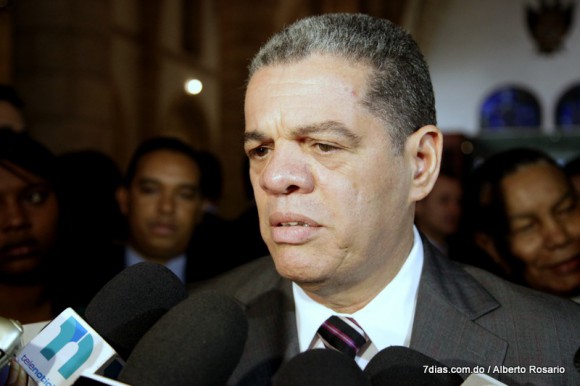
Fuente: http://www.7dias.com.do/el-pais/2016/04/18/i209118_baret-cuatro-anos-han-creado-las-bases-para-transformacion-educacion.html#.VxVBV39Suko
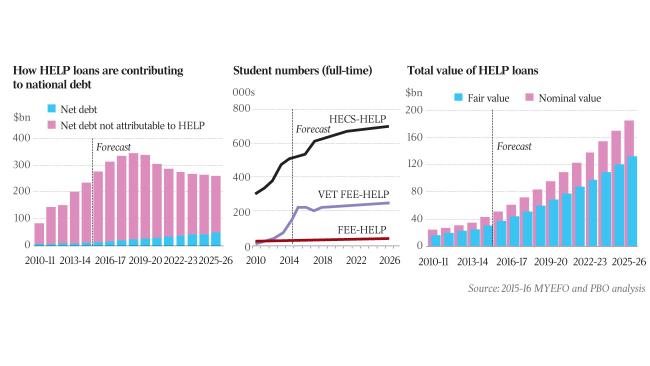
Oceanía/Australia/Abril 2016/Autor: Adam Creighton / Fuente: theaustralian.com.au
Resumen: La apertura de acceso a los contribuyentes, desde hace tiempo en Australia, de subsidios en un esquema de préstamo de enseñanza superior, a prácticamente cualquier estudiante que es aceptado por cualquier proveedor, de estudiar nada, ha sido un desastre económico.
The Rudd-Gillard government handed out blank cheques from 2009 onwards to universities and unscrupulous vocational education providers, which are still being increasingly and voraciously cashed.
And to the Coalition government’s discredit, they have not been withdrawn.
Thanks to new Parliamentary Budget Office research we now know the fiscal landmines Labor’s “demand-driven’’ education system has planted.
Almost 30 per cent of the outstanding stock of $42 billion in student loans has already been written off. Almost 20 per cent of new loans issued this year for tertiary study are assumed never to be repaid. The annual budget cost of such loans will swell to $11bn a year by 2025.
Opening up access to Australia’s longstanding — and rightly lauded — taxpayer-subsidised higher-education loan scheme to practically any student who is accepted by any provider to study anything has been an economic disaster.
The jobs market has exhibited no marked improvement from the course explosion; indeed, the unemployment rate is higher now. And there has been no noticeable efflorescence of learning and culture otherwise.
The number of university students accessing loans has increased more than 11 per cent a year to 522,000 since 2010. But the real vandalism is in the 147 per cent-a-year annual average increase, to 226,000, in students enrolled at private vocational providers.
Many of these students have been blatantly defrauded.
For instance, one operator picked up $46 million in loans last year to run online courses for 4000 students and produced only five graduates.
This is a system completely out of control. As a stopgap before a more fundamental review, the government should adopt Grattan Institute researcher Andrew Norton’s reform suggestions.
First, the income threshold above which student loans must be repaid should be cut from the current $54,000 to at least $42,000. Almost a third of partnered HELP debtors with incomes below the threshold live in households with disposable annual incomes of more than $100,000.
Second, loans should be reclaimable from deceased estates. Longer-term, the range of courses eligible for government-subsidised loans should be closely scrutinised, with courses deemed to offer little employment benefit excluded.
Nobel Prize-winning economist Michael Spence spoke in 1974 of the “signalling’’ sickness. Students know more about their abilities than potential employers, so use degrees and courses to differentiate themselves from other students. But as more people attend university and complete courses, the brighter students have to accumulate more degrees to distinguish themselves. This results in more people spending more of their lives in educational establishments rather than in jobs, which in many cases do not inherently require much study.
Fuente de la noticia: http://www.theaustralian.com.au/business/opinion/adam-creighton/blank-cheques-mean-books-will-never-balance/news-story/dfe4c3902e84eadceff8bf90de4d6ead
Fuente de la imagen: http://cdn.newsapi.com.au//image/v1/751a09706590f4d1042b1de9a126cb04?width=650
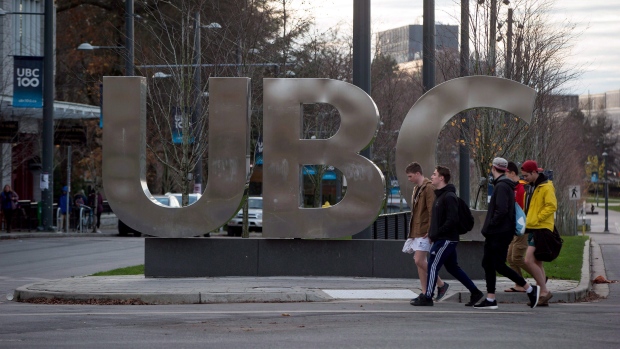

Canadá/CBCNews-BritishColumbia/2 de abril de 2016/Autor: Jason Proctor
Resumen: La Universidad Británica de Columbia es una de las universidades
públicas más importantes de Canadá y actualmente se encuentra sumergida en
una crisis generada por problemas de diversas índole, los cuales van desde
asaltos sexuales a motines en algunas facultades. Dado a una disputa entre
el personal rector de la Universidad en los campus de Vancouver y Okanagan,
se ha generado comentarios en los medios sociales propiciado por los
estudiantes, donde se exhibe la información de los eventos en los campus
que han generado grandes sumas de dinero; los estudiantes han pedido
transparencia a las autoridades. Por otro lado, la UBC ha tenido que hacer
frente a la votación de la Asociación de Profesores de no confianza en el
consejo de administración, en tanto, los críticos se han quejado de que la
junta está tratando a la universidad como una corporación.
Noticia:
Pollster says old-fashioned press conferences and media lines don’t work
in transparency-focused era
As the University of British Columbia stumbles from crisis to crisis,
smiling officials have attempted to put a brave face on problems ranging
from sexual assaults to faculty mutiny.
It’s understandable that one of Canada’s most revered public institutions
would want to protect its reputation. But at what point does the obsession
with good public relations become a problem in and of itself?
Amplifying the damage?
There’s a telling point in Madam Justice Lynn Smith’s review of the fiasco
that resulted in former board of governors’ chairman John Montalbano’s
resignation last October.
One that speaks to PR issues which continue to dog the university.
If you haven’t been following the soap opera intrigue inside UBC’s hallowed
halls, Montalbano stepped down in November after Smith found UBC failed to
protect the academic freedom of Jennifer Berdahl.
She’s the professor who blogged about her suspicion suddenly
departed former president Arvind Gupta lost a «masculinity contest» with
school leadership.
UBC professor Jennifer Berdahl wrote a blog suggesting former president
Arvind Gupta had lost a masculinity contest with school leadership.
(Twitter)
Never mind that copies of emails between Montalbano and Gupta leaked months
later appeared to back up that claim; not for the first or last time,
UBC’s PR-centric approach to a situation only served to amplify the damage.
The judge didn’t find Montalbano broke any policies himself, but said
nobody stopped him from making an «unprecedented and unwise» direct call to
Berdhahl to tell her how unhappy he was with her musings.
Instead, the office of the dean of the Sauder School of Business appears to
have been worried about potential fallout from the posting on a blog
which — realistically — most people might never have heard of had the whole
situation not been handled so spectacularly badly.
«Concerned about Mr. Montalbano, Sauder’s reputation and future fundraising
prospects, the dean’s office conveyed a message about those concerns to Dr.
Berdahl,» Smith wrote.
«At the same time, it failed to elicit her point of view or state support
for her in the exercise of her academic freedom.»
Transparency demanded
In case you missed that — essentially — the university was more worried
about looking good than acting well.
It’s an approach veteran pollster Mario Canseco says appears to be typical
of the way UBC handles problems — one stuck in an era when crisis
communication meant a press conference and an apology.
«The era of holding press conferences is coming to an end,» says Canseco,
vice-president of Insights West.
«If you don’t engage people using the tools that they’re communicating
with, it’s going to be very difficult to try to turn the tide and change
perceptions they have of you and your brand.»
With 60,000 students and 15,000 staff split between its Vancouver and
Okanagan campuses, Canseco says UBC is effectively a small community. One
that would rank somewhere between Prince George and Nanaimo in scale.
Given the youth of the student population, he says it’s impossible not to
expect social media buzz around major events on campus to outstrip official
proclamations. And what’s demanded is transparency.
Former UBC president Arvid Gupta abruptly relinquished his post last
August. The university has struggled to explain why ever since. (UBC)
This week, UBC has had to deal with the faculty association’s vote of no
confidence in the board of governors, continued fallout from the Gupta
affair and the search for a new president.
The university’s vice-president of external relations has called the vote a
«healthy internal discussion» which is good to have in a place full of «big
personalities and big egos».
But critics have complained the board is treating the university like a
corporation, as opposed to the open marketplace of ideas, dissent and
democratic principles that you might hope for from a post-secondary
institution.
Cardinal rules for risk communication
In 1988, a pair of American researchers laid out what are still considered
the seven «cardinal rules» for risk communication.
Chief among them: «be honest, frank and open»; «speak clearly and with
compassion»; and «accept and involve the public as a legitimate partner.»
Granted, what’s happening on campus may not rise to the level of health,
safety or environmental threat risk communication is usually meant to
convey, but good public relations borrows from the same principles.
Canseco says these are lessons he learned himself after the dramatically
wrong predictions pollsters made about B.C.’s 2013 election.
«I’ve done 35 elections in my life. In the 34 that went well, nobody called
me,» he says.
«You need to be able to face all of the controversy that comes when
something goes wrong and the best way to do it is be open and say, ‘this is
what happened,and this is why it will never happen again.'»
The facts about Gupta’s departure have gradually emerged through access to
information requests, leaks, and the former president’s decision to break
his own non-disclosure agreement.
But the process has left UBC looking like it is being dragged into the
light instead of leading the charge.
There’s another telling moment, this one from the *massive FOI dump*
the university released almost half a year after Gupta’s sudden resignation.
It’s a four-page summary of the «various chatter around social media»
prepared by a communications officer for UBC managing director of public
affairs Susan Danard on the day Gupta’s departure was first announced in
August 2015.
«Arvind Gupta» was trending in Vancouver by 1:15 p.m. with an average of
«400 people at any given moment reading the Arvind article» on the
university’s website.
The memo lists four «main themes of tweets» including «what’s the real
story?»
We’re still waiting.